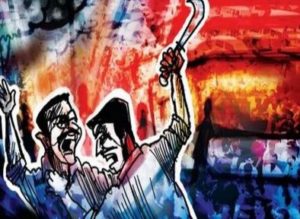Justice: A lost battle for the dalit activist in life and death
 Madurai: Kin of 35-year-old Muthalagan, a dalit activist from Madurai, believe he could have escaped the sickle, had he not nurtured the dream of becoming an MLA someday — a goal which had him take the liquor mafia of his village head on, but ended prematurely on June 28 this year when he was hacked to death.
Madurai: Kin of 35-year-old Muthalagan, a dalit activist from Madurai, believe he could have escaped the sickle, had he not nurtured the dream of becoming an MLA someday — a goal which had him take the liquor mafia of his village head on, but ended prematurely on June 28 this year when he was hacked to death.
Muthalagan may have been a target of upper caste who are alarmed over the rising tone of protest among dalits against injustice, says A Kathir. A recent report released by Kathir’s Madurai-based NGO, Evidence, lists out case studies of 27 young SC/ST men from across the state, who were allegedly murdered between July 2016 and June 2017 for resolutely advocating various causes — from inter-caste marriages and booking of cases under the SC/ST Prevention of Atrocities Act to rallying against illicit liquor. Most of them were aged between 25 and 35.
“While cases like the murder of Kannada writer and rationalist M M Kalburgi (in 2015), have received abundant media attention, in villages people who take to activism and get killed are common folks whose everyday lives are affected by caste-based discrimination,” Kathir says.
Muthalagan is a case in point — constantly discriminated for his caste, he fought for himself and others. “In the Nagamalai-Pudukottai belt, where caste atrocities are rampant, he was always at the forefront ensuring that cases were registered under the SC/ST Atrocities Act and not just as murder,” says his brother Muthaiah. A school dropout, Muthalagan helped members of the SC community get community certificates, conducted inter-caste marriages and mobilised women to force shut liquor shops.
Another report released by Evidence says that in 99% of dalit murders, the chargesheet isn’t accurately filed and in 95% of the cases, the investigation is partial. Kathir points to an alarming level of negligence in the handling of such cases. “In many cases, the murder weapon is not recovered, and a fake one is produced in the court. And when stark differences arise over the weapon following the post mortem report, the case is labelled fake and the perpetrators let loose. Corrupt public prosecutors only fuel this tort further,” says Kathir.
In the case of another murdered crusader — 31-year-old Palanivelu from Periyakottai in Dindugal district — of the five suspects identified by a witness, only three were arrested and are now out on bail. Palanivelu was spearheading a youth movement against an illicit liquor racket in his village that was poisoning the youth and posing a threat to women who had to cross the liquor shop every day. After complaints to the local police turned futile, the group sought the help of a lawyer, who ensured the shop was closed down.
“The miseries these bootleggers have put us through are unimaginable. They assaulted the wife of another protestor, following which she miscarried,” says Palanivelu’s 26-year-old widow Kaliswari.
Palanivelu’s case also highlights how caste as an influencer in rural Tamil Nadu, has created fissures within the SC community itself. “His murderers were men from his own caste, who were backed by liquor traders from the village’s dominant caste,” says Kaliswari. “We are certain they had the police’s support. If not, why was no action taken against the illicit liquor trade even though it had been going on for the past 10 years? ” she asks.
Madurai-based activist and advocate Nirmala Rani says in an atrocity-prone district, the social composition of the police hierarchy must be such that there are adequate personnel from the SC/ST communities in the force. “There is a specific provision in the SC/ST Prevention of Atrocities Act that calls for such an arrangement. This is to ensure that caste crimes are investigated impartially. But the government hardly pays attention to this and not many know that such a clause exists,” she says.
Rule 16 of the SC/ST Prevention of Atrocities Act 1989 calls for a state-level vigilance and monitoring committee to be formed under the chairmanship of the chief minister, to review such cases every six months and provide relief and rehabilitation to victims. However, under the new government, the committee hasn’t met even once, alleges Kathir. “The last it met was for 20 minutes under the O Panneerselvam government. In Tamil Nadu, the SC/ST Prevention of Atrocities Act is clearly not enough,” he adds.
Source: The Times Of India





